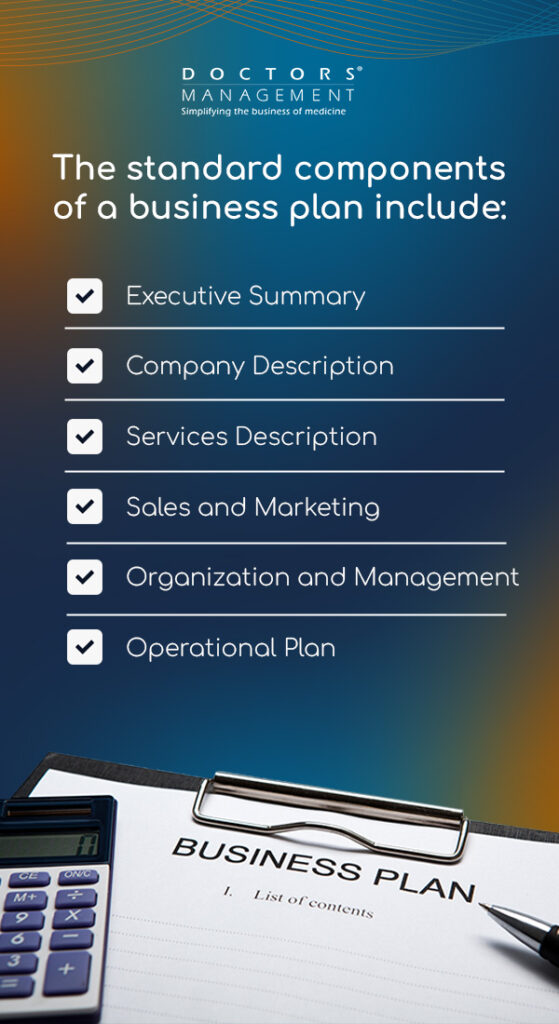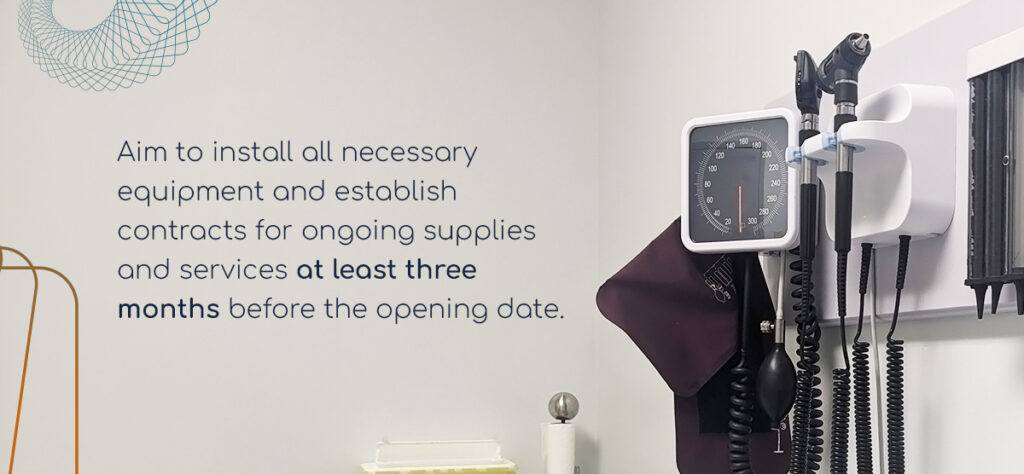Urgent care clinics (UCCs) fill a vital gap between primary care providers and emergency rooms, offering essential care to people who need it, when they need it. The 7% annual growth rate in these centers nationwide, amounting to hundreds of new centers each year, confirms that communities have substantial needs for them. However, many capable professionals who could meet these needs may be struggling with starting an urgent care clinic.
Opening an urgent care center is an opportunity to improve and potentially save lives. But taking a UCC from idea to reality is a multifaceted process requiring careful planning and attention to detail. Our urgent care startup checklist will provide tips for starting a UCC without missing a step.
1. Conduct a Feasibility Study
Before investing resources in starting an urgent care center, explore the viability of this opportunity. A feasibility study is the process of evaluating the profitability of the market for an enterprise and the feasibility of serving it efficiently. Important factors to explore when conducting a UCC feasibility study include:
- Identifying locations with demand for UCCs.
- Understanding the needs, wants, and values of people in those areas.
- Recognizing competitors in those locations and assessing their strengths and weaknesses.
- Considering how to differentiate the UCC from competitors to access market share.
- Checking the regulatory compliance landscape in these spaces.
- Comparing the projected costs and earnings from operating in these markets.
2. Choose a Location
If the feasibility study reveals viable opportunities, it’s time to commit to a location and start making this UCC a reality. When comparing potential locations, it’s important to consider trends in an area along with the current situation. For example, investigate how any infrastructure projects could impact a potential site’s accessibility. With current circumstances and trends in mind, consider:
- The demand for urgent medical care in the area.
- The competitors already vying to meet that demand.
- The site’s visibility and accessibility.
- The costs of building, buying, or leasing there.
3. Research State Licensing Regulations

Regulations for healthcare facilities like UCCs differ across states and sometimes also at the local level. Anyone looking to open a UCC should contact their state’s licensing agency to check which licenses are needed to operate there. It can take several months to receive some licenses, so take this time window into account when setting an opening date.
4. Register a Business Entity
Creating a business entity for a UCC is important for legal and financial reasons. A UCC could be a sole proprietorship, partnership, corporation, or limited liability company (LLC), and each structure has its own regulations and advantages. An urgent care startup consulting team can help choose the right entity type, but most UCCs can benefit from an LLC structure, as it offers:
- Limited liabilities: The healthcare industry has its share of legal challenges. If a lawsuit arises against a UCC, an LLC structure keeps members’ personal assets safe from seizure in most circumstances.
- Tax flexibility: LLCs can choose between corporate taxation, where the business itself pays tax before owners get their share of profits, and pass-through taxation, where individual owners pay taxes on their earnings and the entity itself is exempt from tax. This flexibility can be a strategic advantage for UCCs.
- Business credibility: LLCs often have greater credibility with banks and other institutions than less formal entities, like sole proprietorships. This may help a UCC secure financing and build trust.
5. Get an EIN
As part of the UCC registration process, one must obtain an employer identification number (EIN). The IRS issues this nine-digit number, allowing the UCC to open a business account, apply for licenses, and file tax returns.
6. Register a Business Name
Choose a suitable UCC name and research it to ensure no other business is using it. After confirming the name is available, register the UCC under that name in the correct state. Contact the secretary of state’s office to check the regulations and costs for registering an entity in that location. This may involve registering with both local and state governments. Registration costs are typically modest.
7. Open a Bank Account
Every UCC should have its own bank account. Approach reputable banks operating in the intended area, and compare their products to open a suitable business account for the UCC.
8. Create a Business Plan

A business plan is a UCC’s intended roadmap to success and is necessary for financing applications. The standard components of a business plan include:
- Executive Summary: This introductory section summarizes the business proposal, which the remaining sections will clarify.
- Company Description: This section introduces the UCC, its organizational structure, and its mission and vision.
- Services Description: This section explains how the UCC will earn revenue. It specifies the medical services it will offer and how they will be priced.
- Sales and Marketing: This section provides an overview of how people will discover and choose this UCC for their urgent medical needs.
- Organization and Management: This section identifies the key people managing the UCC’s operations and defines their roles.
- Operational Plan: This section details the UCC’s facilities, staff, supplies, and other aspects of daily operations.
9. Apply for Funding
There are various options for financing a UCC. Small Business Administration (SBA) loans are one popular solution. These are government-backed loans, often with lower interest rates than standard business loans.
However, most SBA loans are only available for businesses already operating, so an individual looking to open a UCC may be limited to microloans when applying for SBA funding. Nonetheless, an SBA microloan could help cover some of the initial costs, like equipment and supplies. The SBA’s lender match tool can also be used to search for prospective lenders.
Other funding options include regular business loans from banks, federal grants, and private investors. For any funding application, prepare to provide information like:
- A complete business plan.
- An operating budget and financial projections.
- A breakdown of funds needed and how the UCC will allocate them.
- Credit and tax histories of all owners.
10. Get Insurance
Business insurance is crucial for a UCC’s financial security. Several types of insurance could be worth purchasing, but the most critical are:
- Medical malpractice insurance: This insurance covers claims of negligence, malpractice, or incompetence.
- General liability insurance: This insurance protects a UCC against third-party injury and property damage claims related to the business’s operations.
- Cyber liability insurance: This insurance covers legal costs and other expenses arising from cyberattacks or breaches of patient data.
- Business property insurance: This insurance provides coverage against damage to or losses of physical assets from fire, theft, vandalism, or disasters.
11. Choose a Contractor and Begin Installations
Whether building, buying, or leasing UCC facilities, transforming a site into a fully equipped UCC usually requires a contractor. An experienced UCC contractor can save time and money through optimal material and design choices and organizing efficient logistics. Choose a contractor who understands the services this UCC will offer and how to prepare a facility for top-notch urgent care service.
12. Select EMR and RCM Providers
Well in advance of the opening day, choose Electronic Medical Record (EMR) and Revenue Cycle Management (RCM) providers. Many EMR providers also offer RCM, so a UCC can streamline operations by working with one provider for both of these services. Both ERM and RCM are vital to UCC operations:
- EMR: This software stores patient information and medical histories. Easy access to these centralized data stores helps healthcare providers make faster, more accurate decisions for quality urgent care.
- RCM: This software oversees the financial aspects of operations to ensure the UCC receives payment for all its services. This involves billing, insurance claim submissions, and updating patient accounts.
Onboarding with the EMR and RCM provider should happen as early as possible. That way, there is ample time to implement the software systems and train staff to use them.
13. Hire Staff
Use networking and job listings to look for qualified employees to work at the UCC. Invest time and attention in the recruitment process for doctors, nurses, facility managers, administrators, and support staff. Aim to identify prospects who:
- Align with the UCC’s vision, mission, and values.
- Treat colleagues and patients with compassion and respect.
- Have the necessary skills, qualifications, and experience.
- Are eager to pursue professional development and acquire further credentials.
Some top-quality staff are looking for a change of pace from emergency rooms or primary care offices. Approach these prospects early, giving them time to complete any notice period their current employment contract requires.
14. Navigate Contracting and Credentialing
Establishing a reliable revenue base for a UCC depends on early contracting and credentialing during the startup process:
- Contracting: A UCC must negotiate contracts with healthcare insurance companies to become an “in-network” provider for patients in the area. Contract partners and terms can have a significant impact on a UCC’s potential patient volume and reimbursement rates. Contracting will also affect regulations for the UCC’s operations to maintain compliance and keep the contract active.
- Credentialing: This process involves verifying the qualifications of each healthcare provider working at the UCC. It helps ensure they are licensed to practice at the business and meet contract partners’ regulations to offer in-network services.
15. Set a Go-Live Date
Setting a realistic opening date in advance can help structure a UCC’s startup process. Working backward from this date helps set milestone deadlines along the way and promote the UCC to the community ahead of opening day. Build some extra room into the timeline to accommodate the unexpected and avoid disappointing stakeholders. The UCC should be ready to go live once you have:
- Secured the facility and completed installations.
- Recruited and credentialed providers.
- Obtained all necessary licenses.
- Implemented EMR and RCM software systems.
- Fully contracted the main payer.
Though completing all these steps in eight to 12 months is possible, setting a go-live date 12 to 14 months after starting the project provides some additional room to manage any setbacks.
16. Obtain Equipment, Supplies, and Services

A UCC needs reliable equipment, supplies, and services to deliver quality healthcare. From medical machines and software to IV fluids and medical waste disposal services, establishing relationships with suppliers and planning order schedules in advance is critical. Approach medical equipment and supplies wholesalers to negotiate the best prices for high-volume orders. Aim to install all necessary equipment and establish contracts for ongoing supplies and services at least three months before the opening date.
17. Spread the Word
Months before the opening day, kick-start a marketing campaign so the community knows about the UCC’s services. Let them know what services are available, what distinguishes this UCC, and what healthcare networks the providers belong to. Before starting this campaign, be sure to understand the intended target market. Depending on the target market, key marketing channels include:
- A UCC website: Create an attractive, user-friendly website and build its visibility through search engine optimized (SEO) content.
- Social media: Share helpful content and promote the UCC’s services on the social media platforms the target market uses most.
- Paid advertisements: Consider budgeting for targeted ads. Options range from ad space in the local newspaper to pay-per-click (PPC) Google Ads.
- Word of mouth: Seek opportunities like community events to meet people and share about the UCC in person. Consider hosting your own event, like a live health seminar.
18. Open Doors and Embrace Improvement
After completing the items on this urgent care startup checklist, the UCC is ready to open its doors. But this is only the beginning. Commit to quality healthcare that puts patients first, and look for every opportunity to drive continual improvement. This enhancement happens at the medical practice level, as your providers pursue professional development and stay current in their field.
It also happens at the business level, as you learn to fine-tune marketing, negotiate better contracts, and optimize business processes. Seek out business growth experts who specialize in the healthcare industry to help the UCC succeed.
Get Assistance Starting a UCC With DoctorsManagement, LLC
The process of opening an urgent care center has many different moving parts. The best way to navigate it successfully is with the help of a seasoned partner who knows how to open an urgent care center and can walk you through the journey.
DoctorsManagement, LLC is a full-service consulting firm dedicated to helping medical organizations operate efficiently and profitably. Our seasoned team can support you through every step of opening an urgent care clinic, including:
- Market research.
- Business planning.
- Acquiring financing from banks and lending institutions.
- Choosing and implementing EMR and RCM systems.
- Recruiting staff.
- Credentialing.
- Achieving regulatory compliance.
- Continual process improvement.
Please contact us for a free consultation today to learn how we can help start your urgent care center.
























